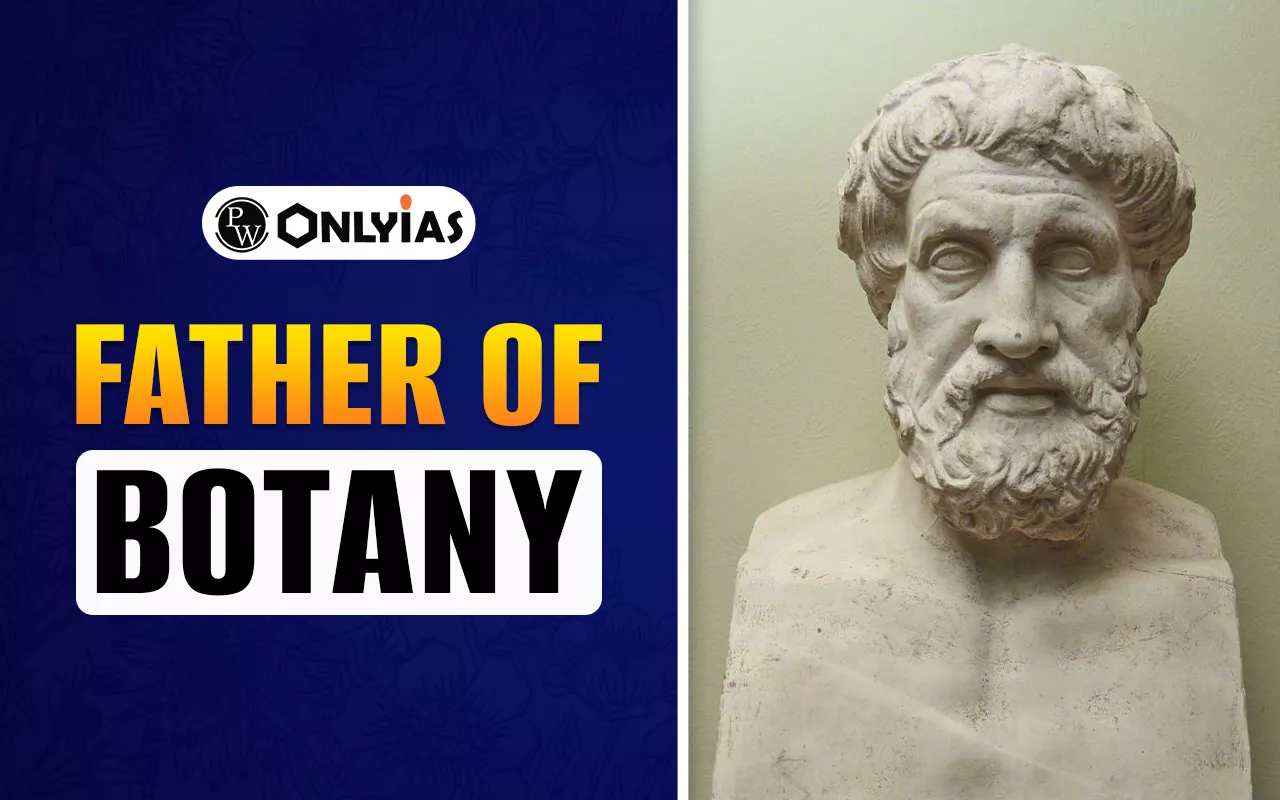Father of Botany is the title given to Theophrastus, the ancient Greek philosopher who is considered the first scientific plant researcher. The studies made by Theophrastus continue to inspire scientists and botanists worldwide.

Father of Botany: Theophrastus was a great Greek philosopher and scientist. He is known as the Father of Botany due to his deep study of plants, their structure, and their growth. Plants are an important part of our lives. They give us food, oxygen, and have medicinal properties. But in ancient times, people did not realise the importance of plants enough.
Theophrastus was the first person to observe plants carefully and systematically write about their properties and importance. His books and observations were instrumental in influencing the botanists and scientists in the present times.
Theophrastus is regarded as the Father of Botany. He was a student of Aristotle, another great Greek philosopher. He lived around 371–287 BCE in ancient Greece.
Theophrastus is recognised as the Father of Botany in the entire world. His work influenced scientists from every generation.
Theophrastus was born on the island of Lesbos, Greece, around 371 BCE. His real name was Tyrtamus, but Aristotle gave him the name “Theophrastus,” meaning “divine speech,” due to his eloquence and intelligence.
Check Out UPSC CSE Books
Visit PW Store
Theophrastus, the Father of Botany, made several important discoveries that helped people understand plants in a scientific way. He studied plant growth, their reproduction, and their response to different environments.
The legacy of Theophrastus, the Father of Botany, continues to live on even after more than 2,000 years.
Ready to boost your UPSC 2026 preparation? Join PW’s UPSC online courses today!
Theophrastus is known as the Father of Botany for his systematic study of plants, their structure, and their growth patterns.
He was the first to observe and classify plants scientifically, dividing them into trees, shrubs, and herbs, and recording their characteristics in detail.
Theophrastus wrote two significant books—Historia Plantarum (The History of Plants) and De Causis Plantarum (The Causes of Plants)—which became the earliest textbooks on botany.
His logical and observational approach to studying plants laid the foundation for modern scientific methods in botany, agriculture, and environmental studies.
Even after more than 2,000 years, his works continue to inspire scientists globally, influencing later botanists like Carl Linnaeus and shaping the study of plant life.
<div class="new-fform">
</div>
